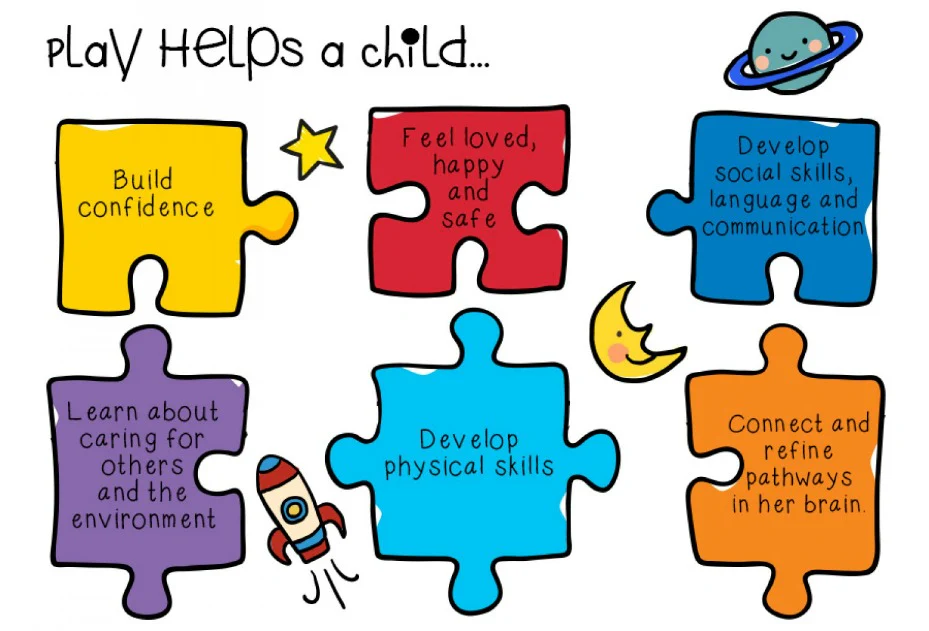-

Navigating the World of Baby Gear: Must-Haves for New Parents
Preparing for a new baby involves choosing the right gear to keep your little one safe, comfortable, and happy. With so many options on the market, finding high-quality essentials can feel overwhelming. Here’s a guide to the must-have baby gear that will make life easier for you and safer for your baby, along with tips…
-

The Role of Storytelling in Language Development and Imagination
Storytelling is one of the most ancient and powerful tools for nurturing a child’s development. From the earliest stages of life, children are captivated by stories—whether they’re listening to parents read aloud, making up their own tales, or interacting with others through spoken word. Beyond its entertainment value, storytelling plays a crucial role in enhancing…
-

Promoting a Growth Mindset in Children: Why It Matters
A growth mindset is the belief that abilities and intelligence can be developed through effort, learning, and perseverance. Research shows that fostering a growth mindset in children positively impacts their motivation, resilience, and overall academic and personal success. This article will explore the concept of a growth mindset, its benefits, and practical strategies to help…
-

Understanding Childhood Anxiety and How to Help Kids Cope
Anxiety is a natural part of childhood, but for some children, it can become overwhelming and interfere with daily life. Understanding childhood anxiety, its signs, and ways to support kids through their fears and worries is essential for parents, teachers, and caregivers. In this article, we’ll explore the nature of childhood anxiety, common triggers, and…
-

The Importance of Play in Child Development
Play is far more than just a fun activity for children—it’s essential to their physical, emotional, social, and cognitive development. Through play, kids explore their world, build social bonds, and develop critical thinking skills. This article will delve into why play is vital for children’s overall growth and provide tips for encouraging different types of…
-

Encouraging Social Skills and Friendships in Young Children
Here are practical ways parents can support young children in developing social skills and making friends: 1. Model Positive Social Behavior Children learn social skills by watching their parents and caregivers. Show kindness, active listening, and respect in your interactions. If your child observes you treating others kindly and respectfully, they’re more likely to adopt…
-

Healthy Nutrition Habits for Kids: What Every Parent Should Know
Building healthy eating habits in children is essential for their growth, energy, and long-term well-being. With so many food options and often busy family schedules, it can be challenging to instill nutritious habits in kids. Here, we’ll explore key nutrition principles, offer practical tips, and share ideas to help parents foster a positive relationship with…
-

Creating a Safe and Stimulating Home Environment for Learning
A home filled with engaging resources and a positive atmosphere can ignite curiosity, encourage exploration, and nurture a lifelong love of learning. By thoughtfully organizing a learning-friendly space, parents and caregivers can support children’s intellectual, emotional, and social development. Here’s how to create a safe and stimulating home environment for learning, with recommendations for age-appropriate…
-

The Impact of Screen Time on Children’s Development: What Parents and Healthcare Providers Should Know
In today’s digital age, screen time is nearly unavoidable, and children are increasingly exposed to screens from an early age. While technology offers educational and recreational benefits, excessive screen time can impact children’s physical, mental, and emotional well-being. Here, we explore the effects of screen time on children’s development, share insights from recent research, and…
-

Fostering Emotional Intelligence in Children: A Guide for Parents, Teachers, and Caregivers
Emotional intelligence (EQ) is a crucial skill that can have a profound impact on a child’s ability to succeed in school, form positive relationships, and handle challenges with resilience. Unlike IQ, which focuses on cognitive abilities, EQ involves recognizing, expressing, and managing emotions effectively. Here’s a comprehensive guide on why emotional intelligence matters for children…
Got any book recommendations?